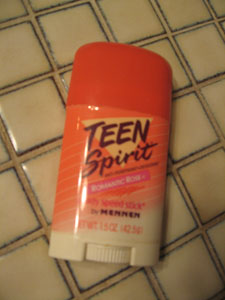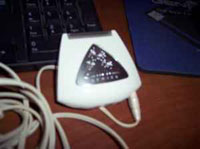 I first worked with fourth graders through the I Have a Dream after-school program in East Palo Alto. I taught Creative Writing/California History to a small group of low-income African American kids, and they were quite a handful. Later that year, I substituted in a fourth grade class of wealthy white kids at a private school in Menlo Park. I found that the kids were just as off the wall as they were in East Palo Alto, and in the same ways. It seems that across socioeconomic lines, fourth graders are a unique breed. They’re right on the border of puberty, no longer children but not yet preteens. As those infamous hormones are beginning to circulate, “tweens” enjoy testing their limits.
I first worked with fourth graders through the I Have a Dream after-school program in East Palo Alto. I taught Creative Writing/California History to a small group of low-income African American kids, and they were quite a handful. Later that year, I substituted in a fourth grade class of wealthy white kids at a private school in Menlo Park. I found that the kids were just as off the wall as they were in East Palo Alto, and in the same ways. It seems that across socioeconomic lines, fourth graders are a unique breed. They’re right on the border of puberty, no longer children but not yet preteens. As those infamous hormones are beginning to circulate, “tweens” enjoy testing their limits.
This is what I’ve noticed about my fourth grade classmates so far:
1. They stink.
After recess, there’s a slight, foul odor that hovers around the room, drawn from a collection of sweaty feet and armpits. I was in fourth grade myself when my mom gently suggested that I start wearing deodorant. At the time, I felt offended and probably left the room in a huff. In retrospect, however, I’m glad that I got the news from my mom at home than from a classmate in front of my peers. I found one of my first Teen Spirit sticks (pictured above) buried in one of the bathroom cabinets. It’s a weird artifact, but it makes me nostalgic all the same.
2. They’re starting to enter the phase where the What’s Happening to My Body? books come in handy.
 The girls in particular are starting to have acne breakouts, and they have noticeably hairy legs. I remember getting my first zits in fourth grade and starting to shave my legs. I didn’t get why some moms didn’t let their daughters shave their legs yet, because I didn’t know that most women used real razors that could nick the skin. My mom’s Asian peach fuzz never warranted anything more than an electric Lady Schick.
The girls in particular are starting to have acne breakouts, and they have noticeably hairy legs. I remember getting my first zits in fourth grade and starting to shave my legs. I didn’t get why some moms didn’t let their daughters shave their legs yet, because I didn’t know that most women used real razors that could nick the skin. My mom’s Asian peach fuzz never warranted anything more than an electric Lady Schick.
I think my mom bought me The New Teenage Body Book that year. I found the letters to the editors so fascinating that I could probably recite a few from memory today.
3. Taboos and toilet humor fascinate them.
Since I’m acting as a fellow classmate rather than a disciplinarian, the kids tend to be comfortable sharing their secrets with me. Two of the girls in my table group urged one boy, Jose, to show me the song he’d written. He cautioned, “You don’t even wanna see it,” but passed me a folded up piece of binder paper anyway. The song, penciled sloppily and peppered with misspelled swear words, was about someone who “went to the bathroom and did daeria [sic],” then summoned his parents to clean him up. I said, “Pretty gross!” without much fanfare and passed the note back to the budding Tom Green.
Before class, Mrs. Lucas had mentioned that fourth graders were constantly testing the boundaries of acceptable behavior. For example, when she’d asked the kids to share the sentences they’d written about dogs, one boy (perhaps Jose) had volunteered his: “The dog pooed.” Hearing this, I burst out laughing, glad that it wasn’t my job to inform the kids about appropriate classroom content. After all, as I like to say, “I love me a good poop joke.”
4. They’re all up in your business.
As I sat down in their class, two girls approached me and asked, “Are you Melia Dicker?” My reputation had apparently preceded me. Mrs. Aja had told them that I’d be visiting their class in preparation for my book. They seem to enjoy playing make-believe that I’m “the newest student,” as my buddy Elisa calls me, and eqipping me with tools: a pencil box, markers, and copies of the classwork.
The fourth graders were more distracted by my presence than the younger kids had been, chatting with me while Mrs. Lucas was giving instructions and making me anxious that we were all going to get in trouble. They’re so curious about my notetaking that I have to use shorthand, so they can’t read my observations out loud for everyone to hear.
While third graders still seem like kids, fourth graders seem more like mini teenagers. It’s like they’re doing a trial run of their awkward middle school years, and they sometimes act a little too grown up for their own good. It’s entertaining to watch them push the envelope — I never know what they’ll try next.
*******************************************************
Your Two Cents – Leave a Comment
What do you remember about fourth grade, or hitting puberty?
I totally laughed out loud when I read this post! I vividly recall the day when Mrs. Dalton, my fifth grade (and eighth grade) teacher gently told the class that she needed to talk to us about something. She made sure that both doors to our classroom were closed before she gently informed the class that some of us needed to talk to our parents about deodorant ’cause we weren’t always pleasant to smell. I sat there and wondered exactly who she was talking about since I’d never noticed anyone smelling too offensive. I decided that it had to be some of the boys since they always played basketball at recess and were often sweaty when they came back into class.
It could be some of the girls, too. Us girls generally tend to hit puberty earlier than guys do.
Good point! 🙂
It would have been awesome if you’d been busted with the folded up piece of paper and had to read it out loud in class!
maaan, i used to love this stuff…my friends and i all had the Caribbean cool or Caribbean breeze? the green one.
Haha, Darren, I was actually scared that the teacher would do that, or at least give me a disapproving look!
Regina, I loved Romantic Rose, as you can see.
Fourth grade (or puberty) may also be around the time when you start to notice how other people do things differently from how you do them. This may be hard on a lot of kids, but it can be especially hard on children who have added difficulties, since some of them don’t deal as well with things being different as most children without added difficulties.
I have Asperger Syndrome (milder end of Autism Spectrum, now just called Autism Spectrum Disorders or Social Communication Disorders), and a lot of people on the Autism Spectrum have difficulty coping when things are different from what we’re used to. Many of us also have difficulty not reprimanding or tattling on others, when they don’t do what we feel is right, or what we have been taught is right. 3rd or 4th grade (age 8-9) was about when I started noticing how the teachers and the other kids did things differently from how I was taught to do them, or how I understood that they should be done. That was around the time when my body started changing, so that may have played a role in me noticing how other people do things differently.
That’s an interesting point that I hadn’t thought about, Leanne. I do remember feeling more conscious around that time of some girls starting to shave their legs, and how the teacher had gotten a new haircut. That consciousness of the way other people are doing things, and the differences from the way you do them, does seem to kick in with puberty.
I am on the milder end of the Autism Spectrum, and because of that, I have difficulty understanding the difference between what people say vs what they mean. I think that may have had something to do with it.
For most preschool and early elementary school age children, the adults and older kids in their lives teach them things in a very concrete manner.
By the tween or teen years, however, most kids who don’t have Autism or pragmatic language difficulties have realized (or are starting to realize) that the rules adults and older kids taught them to follow when they were younger don’t need to be followed in every situation.
However, people with Autism might continue to understand things in a very concrete way well into adulthood unless they have been taught otherwise.
I’m also the oldest child in a family with only 2 children, so that may have also played a role. With the oldest child(ren), a lot of parents are constantly correcting their child’s manners, behavior, and grammar. With every child after that, parents might be more like, “well, as long as it’s not hurting anyone or anything, I’m just going to let it go.”
It’s hard enough to navigate the social norms of school, and being on the Autism Spectrum must have added a whole other layer of challenge. Good point about parents shaping the behavior of their oldest child more diligently than the others, and how that coaching could benefit an autistic child. I appreciate your sharing your experience; I wouldn’t have known any of this otherwise.
Very welcome! It might also have to do with different parenting styles. Some parents are very picky about their children’s manners, grammar, behavior, and how closely their children follow rules and directions. Other parents are more like, “well, as long as it’s not harmful to anyone or anything, I’m just going to let the kids figure it out on their own.” Some parents are very adamant about making absolute sure that their children’s earliest friends all come from households with rules and values similar to the rules and values in their own household. Other parents might be like, “well, as long as the kids my children play with are nice, and don’t have any dangerous or destructive habits, it’s ok if my kids play with this kid.”
My parents were rather picky about my brother’s and my manners, behavior, grammar, and how closely we followed rules and directions.
This could be part of why some children become enraged or upset when they start to notice how other people do things differently from how they understand that they should be done (usually around the preteen or teen years). They are so used to things being one way, and then all of a sudden they see someone doing something differently from how they were taught. As I said, I am on the less severe end of the Autism Spectrum (my verbal communication and cognitive skills are normal or near normal, but I struggle a little bit socially), so that may have played a role in it.